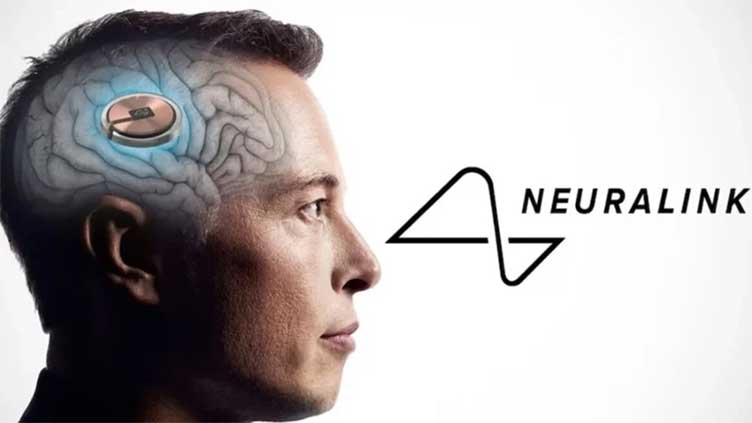Real life Black Mirror: Thousands willing to implant Elon Musk's neuralink chip in their brain

Technology
Neuralink executed 155 implantation surgeries on various animal subjects, including pigs, monkeys
(Web Desk) - In a development that feels straight out of a "Black Mirror" episode, thousands of individuals have expressed their willingness to undergo implantation of Neuralink's brain chip, a brain-computer interface (BCI) project spearheaded by Elon Musk.
In a development that feels straight out of a "Black Mirror" episode, thousands of individuals have expressed their willingness to undergo implantation of Neuralink's brain chip, a brain-computer interface (BCI) project spearheaded by Elon Musk.
This revelation comes from a recent report by Ashlee Vance, a biographer who has closely followed Musk's ventures.
Neuralink, co-founded by Musk in 2016, is on a mission to advance brain-machine interfaces, with aspirations to conduct surgeries on 11 individuals in the coming year and a target of over 22,000 by 2030.
Vance, who conducted multiple visits to Neuralink facilities over three years, shared these insights.
The road to this point has been far from smooth. Earlier this year, the US Food and Drug
Administration (FDA) granted Neuralink approval to initiate human trials for its revolutionary device. Musk has described this implant as a "Fitbit in your skull."
The FDA had initially rejected Neuralink's bid for human testing, citing concerns about the movement of wires connected to the brain chip and the possibility of overheating.
In September, the company commenced the recruitment process for its maiden human trial, seeking individuals with paralysis in all four limbs due to conditions such as spinal cord injuries or ALS.
Ultimately, Neuralink aims to create a smooth integration between humans and machines, enabling activities like message transmission and gaming through mere thought.
However, the immediate goal is to assist those with neurological disorders.
Despite garnering interest from thousands of potential candidates, Vance reveals that Neuralink is still on the hunt for its inaugural volunteer, someone willing to undergo a craniectomy—a procedure involving the removal of a portion of their skull by a surgeon—followed by the insertion of a series of electrodes and ultra-thin wires into the brain, all performed by a robot.
The surgery, according to Vance, takes a few hours for the surgeon and around 25 minutes for the robot to complete.
The thin threads used in the procedure are about 1/14th the width of a human hair strand.
Neuralink has already executed 155 implantation surgeries on various animal subjects, including pigs and monkeys, using the robotic system.
However, Musk's pursuit of efficiency and his aspiration for surgeries to be conducted without human assistance underscore the groundbreaking yet controversial nature of this endeavor.
As technology continues to bridge the gap between the human mind and machines, the ethical and societal implications of these advancements remain subjects of ongoing scrutiny and debate.


